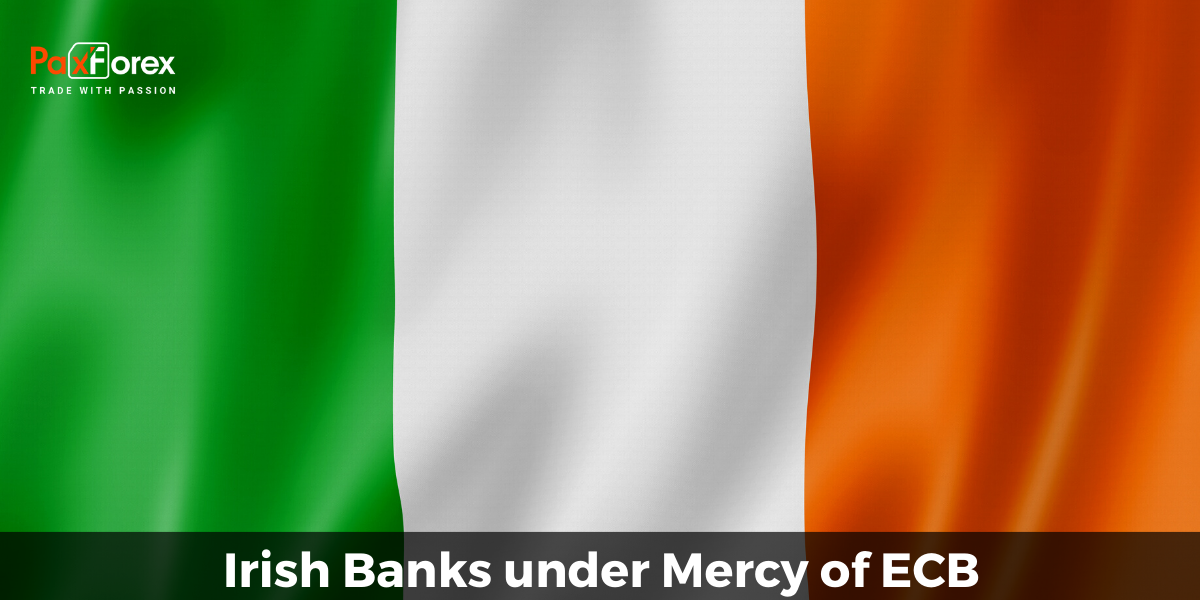
Ireland and the Irish bailout was the sole success story of all the bailout in the Eurozone. It was the only one that seemed to function as desired and Ireland turned around rather fast and was placed on the path to recovery. Whenever bailout talks were held Ireland was mentioned as a success story which screamed for a repeat.
On the surface it all looked like a transaction well structured, but when you dig a bit deeper the problems start to appear. It is true that the Irish banking system is in recovery mode, but it is now threatened by the same institutions which bailed out the sector. Usually creditors would like to receive their money back plus profits, but in this case the creditors to Ireland refuse to strike a deal. It is clear by now that creditors will face losses on their bad loan made to Ireland while the unanswered question is how big the loss will be.
At the center of the problem are Anglo Irish Bank which received a €30 Billion bailout and the ECB which refuses to cut a deal with Dublin and allow the EU-IMF bailout to be exited which would generate the first and only post-bailout success story. Ireland is the only hope for a success story as Greece has basically struck out which nobody wants to mention yet. Cyprus could be the only other potential bailout success which will be used by supporters of socialism as an example in the future of why bailouts were required.
The entire Irish banking sector is now at the mercy of the ECB and their unwillingness to restructure the terms of the Anglo Irish bailout. Almost all of Ireland’s banks have been nationalized during the property crash and the Irish taxpayers, without being asked, were forced to guarantee the liabilities of those banks. Now that Ireland owns its banks Dublin needs to reach a deal with the ECB in order to allow the banking sector to grow without outside interference and return the banks back to the financial markets.
The ECB refuses to change terms as it would be equivalent to monetary financing which the ECB is not allowed and does not want to engage into. They prefer to achieve the same goal, call it a different name and make it more difficult for the recipient which in return jeopardizes the entire bailout package. Currently Ireland pays €3.1 Billion per year until 2023 in service charges for the promissory note issued in return for the Anglo Irish bailout.
Irish Finance Minister Noonan recommended converting the note into long-term government bonds issued by the Irish Central Bank; the ECB refused which shows the lack of trust amongst central banks. Irish banks are dragged down by loss making mortgages which track the ECB borrowing rate. Tracker mortgages charge a much lower interest rate than what the banks pay in the open market and therefore cause heavy losses for the banks. One estimate states that Allied Irish Bank is losing €400 Million per year on €17.7 Billion in tracker loans.
Dublin tries to come up with a new proposal in order to rid Irish banks from tracker mortgages and in order to restructure the note into long-term government bonds which would allow the Irish banking sector to be on the road of a real sustainable recovery while undergoing severe and necessary restructuring.







